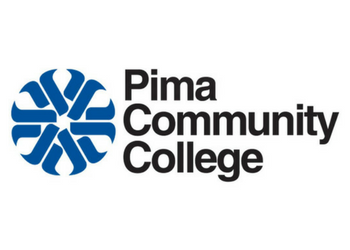 Pima Community College is one of the nation’s largest multi-campus community colleges, serving approximately 40,000 students per year. The college serves Pima County and the Tucson metropolitan area in a community college district consisting of five campuses, four education centers, and several adult education learning centers. Pima was the first college in Arizona to be approved for a registered apprenticeship program, and currently offers apprenticeship opportunities in 11 occupational areas within the sectors of advanced manufacturing and the construction and building trades.
Pima Community College is one of the nation’s largest multi-campus community colleges, serving approximately 40,000 students per year. The college serves Pima County and the Tucson metropolitan area in a community college district consisting of five campuses, four education centers, and several adult education learning centers. Pima was the first college in Arizona to be approved for a registered apprenticeship program, and currently offers apprenticeship opportunities in 11 occupational areas within the sectors of advanced manufacturing and the construction and building trades.
Pima’s commitment to diversity and inclusion is evident through their formal Diversity Mission Statement, their official designation as a Hispanic-Serving Institution, and their high minority population enrollment statistics. Another example of this commitment is Pima’s connection and partnerships with the two Native American communities, the Tohono O’odham Nation, and the Pascua Yaqui Tribe, located in southwestern Arizona. Through the American Association of Community Colleges (AACC) Expanding Community College Apprenticeships (ECCA) grant and other leveraged funding, Pima provides registered apprenticeship opportunities for members of both tribes. As both American Indian communities are officially recognized by the federal government, the Arizona State Apprenticeship Office has no compliance jurisdiction and Pima is federally designated as the registered apprenticeship sponsor for each tribe.
ECCA funds and grant activities at Pima Community College help leverage other funding and work in coordination with four tribal and county workforce and education programs to provide apprenticeship opportunities for tribe members. These coordinating programs include the tribal Workforce Innovation and Opportunity Act (WIOA), Pima County WIOA, tribal Temporary Assistance for Needy Families (TANF), and general tribal educational grants. One additional program, the Native American Career and Technical Education Program (NACTEP), funded federally through the Carl Perkins Act, supports apprenticeship recruitment and enrollment. NACTEP serves over 300 students annually with career and technical education and provides a pre-apprenticeship pipeline for Pima registered apprenticeships.
Tribal and non-tribal employers are recruited for the apprenticeship program and most registered apprentices are incumbent workers. Many of the registered apprentices enter the program through a pre-apprenticeship process where they are working on a one-year technical certificate through Pima. Registered apprenticeship occupational areas that are available for apprenticeships include HVAC, computer technology, aviation, and construction trades such as carpentry, electrical, and plumbing.
Academic and personal support for registered apprentices is provided at the Pima campus and through the Pascua Yaqui tribal workforce office. Intensive case management, weekly check-ins, and assistance with personal issues such as transportation, childcare, and financial issues are primarily handled through the tribal workforce office. Tribal funds and workforce programs ensure that apprentices incur no costs for Pima classes and other apprenticeship costs. The tribal office is the focal point for tribe member recruiting and for working with current and prospective employers to explain the apprenticeship program process and benefits. Pima Community College has the key role of providing technical courses, managing the required federal apprenticeship paperwork and data collection, conducting employer follow-up processes, and preparing and disseminating apprenticeship guidebooks and other program descriptive materials.
Pima’s inclusive approach to apprenticeship training is reflected in the following quote from Lee Lambert, J.D., Pima’s Chancellor, “As a college committed to diversity, equity and inclusion, Pima recognizes the uniqueness of our region and the many cultures who contributed to its growth and development. Our apprenticeship and other work-based learning initiatives are key ways for the College to support learners historically underserved by higher education with new on-ramps to skills training that leads to family-sustaining wages in growing sectors of the 21st century economy.”
